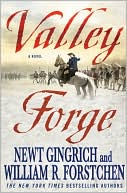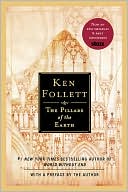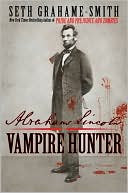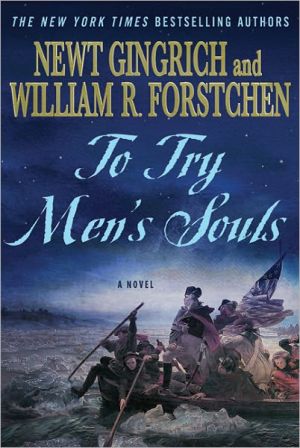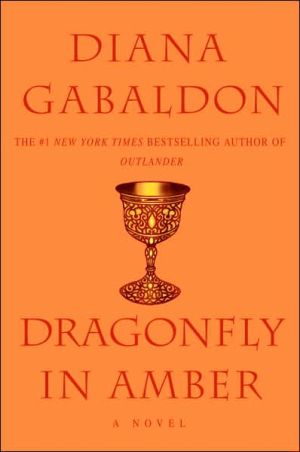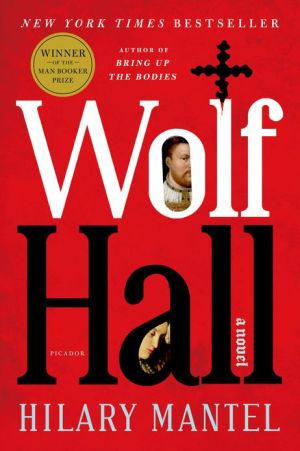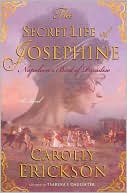Shakespeare Undead
Something wicked this way comes . . . and it keeps coming and coming and coming. . . .\ William Shakespeare was one of history’s greatest writers, a master of words with a body of work that is truly impressive . . . some may say a little too impressive for a single man to accomplish in one lifetime. Perhaps, as many have speculated, he had assistance. Or perhaps the explanation is more . . . unusual. \ Who was William Shakespeare?\ Who was the Dark Lady of the Sonnets?\ Why are the...
Search in google:
Something wicked this way comes . . . and it keeps coming and coming and coming. . . .William Shakespeare was one of history’s greatest writers, a master of words with a body of work that is truly impressive . . . some may say a little too impressive for a single man to accomplish in one lifetime. Perhaps, as many have speculated, he had assistance. Or perhaps the explanation is more . . . unusual. Who was William Shakespeare?Who was the Dark Lady of the Sonnets?Why are the undead stalking the alleyways of London?And can they be stopped?Something is definitely rotten in the state of Denmark. So brace yourself for a wild ride through twisted streets and shadowed graveyards of Elizabethan London, where you’ll discover how the Bard got his Bite. Publishers WeeklyIn this rather clumsy historical mashup, bestseller Handeland (Chaos Bites) pairs zombies and vampires with another perennially popular figure: Shakespeare. Zombies have invaded 1592 London and it’s up to William Shakespeare, whose genius with a quill comes from his extended life as a vampire, to stop them. Aided by Katherine, a zombie hunter to whom he is consummately, perilously attracted (and who bears considerable similarity to Viola in the film Shakespeare in Love, down to her horrible fiancé and goofy nurse), Will is soon embroiled in a mysterious plot that endangers all of London. Handeland blends Elizabethan and contemporary language skillfully and mostly unobtrusively, and the romance sizzles between the intriguing leads. Unfortunately, the novel is hampered by excessive shout-outs to the Shakespearean canon and a rushed ending. (June)
“Though this be madness, yet there is method in ‘t.”\ Hamlet (Act II, Scene II)\ \ London, Autumn-1592 \ What was left of the man shambled into the dark alley, and I followed. I had little choice.\ I am a chasseur, a hunter. What I hunt are those whose souls are controlled by another. I call them the tibonage.\ You’d call them zombies.\ Yes, they exist. All over the damn place.\ Tonight they existed in Southwark, and it was my job to make sure they didn’t crack open someone’s head and make a feast of their brains. The only way to do that was to kill them first. \ The tibonage dragged his feet through the muck, intent on something in the distance. This is the nature of the zombie. They are raised for a reason; they have a mission. Nothing will stop them from completing it.\ Except me.\ “Halt!” I shouted. The tibonage didn’t even glance my way. \ Definitely on a mission. Weren’t we all?\ I hurried after, careful to remain far enough away that the zombie couldn’t spin and grab me. Considering they’re the walking dead, the tibonage are faster than one might think, and if prevented from completing their assignment they fight like baited bears. \ As soon as I came within a sword’s length, I planted my feet and drew my weapon, wincing when the slick, slide sliced through the still air. The tibonage froze; then slowly he turned.\ I should have cut off his head right then. If I had, I never would have seen his face in the silvery glow of the moon.\ Instead, I whispered, “Chalmers?”\ One of our servants. He’d died only last week.\ Hair still well groomed, nails too, skin a wee bit gray but not terribly so. There wasn’t a hole in him anywhere there shouldn’t be. I’d have thought him alive, if it weren’t for the smell. I wrinkled my nose.\ He was dead all right. \ The zombie yanked me close, his teeth clacking together inches from my nose. I dropped the sword and shoved against his chest. Beneath my palms, his skin squirmed. A maggot peeked past the collar of his dusty doublet and winked.\ “Erk!” I shrieked, and jerked my hands away. This only allowed the tibonage to pull me ever closer.\ “Br-br-br,” he chanted, in between the clicking of teeth. “Mmmm,” he growled low. “Mmmm.”\ He obviously hadn’t had his daily supply of br-br-br—\ “Brains,” I snapped, annoyed at both myself for not killing him and him for being unable to articulate a simple word. “If you could say brains, you might actually possess enough of them to get some.”\ Talking to a zombie was almost as foolish as wrestling one. I was strong, but zombies are stronger. I’m not sure why.\ Perhaps there was something in the way they were raised that gave them certain powers. For instance, remaining unharmed through everything but decapitation and fire. That, combined with superior strength, meant the only advantage I had was that my brains could be used for something other than stuffing between my ears.\ I lifted my knee, fast and hard. If his choked shriek was any indication, his balls now had an intimate acquaintance with his throat.\ He let me go. He didn’t have much choice. He was on the ground, clutching his privates and keening. I rescued my sword, and then I returned Chalmers to God.\ The man had always been overly tall, so even on his knees his head was nearly level with mine. As a result, when he burst into ashes I got a face full. Then I couldn’t see.\ Which was the only excuse for what happened next. When the shuffle that sounded behind me was followed by a touch on my shoulder, I reacted. Two hands on the hilt of my sword I swung, and I connected. \ Blood washed the ashes from my face.\ “Oh,” I whispered. “N-n-n-no.”\ I sounded like a zombie. But I wasn’t, and neither was the man who tumbled to the muck-strewn cobblestones. If he had been he’d be ashes, and I’d be on my way to dispatch the next murderous fiend.\ Instead, I was the murderous fiend.\ I fell to my knees as my victim’s eyes fluttered closed, and I sat there until the blood from the slice in his neck stopped flowing. Then I laid my palm against his chest, but the heart beneath no longer beat; his skin had already cooled.\ Should I search out the authorities and attempt to explain?\ A half laugh, half sob escaped my throat. “Excuse me, there is a dead man in the alley. But I didn’t mean to slit his throat, sirrah. Oh no, I meant to cut off his head.”\ I lifted trembling fingers, meaning to rub at the pain in the center of my forehead, but when I saw the blood I let my arm drop back to my side. \ “Who would have thought he could have so much blood in him?” I whispered. “Will I ever be able to wash my hands clean?”\ The stranger was dead. The only way to bring him back would be to ferret out someone who could raise him. But then he would be a zombie—his soul in thrall to another. I doubted this man, whoever he was, would thank me for that.\ No, better to leave him where he lay. At least his soul was already with God.
\ Publishers WeeklyIn this rather clumsy historical mashup, bestseller Handeland (Chaos Bites) pairs zombies and vampires with another perennially popular figure: Shakespeare. Zombies have invaded 1592 London and it’s up to William Shakespeare, whose genius with a quill comes from his extended life as a vampire, to stop them. Aided by Katherine, a zombie hunter to whom he is consummately, perilously attracted (and who bears considerable similarity to Viola in the film Shakespeare in Love, down to her horrible fiancé and goofy nurse), Will is soon embroiled in a mysterious plot that endangers all of London. Handeland blends Elizabethan and contemporary language skillfully and mostly unobtrusively, and the romance sizzles between the intriguing leads. Unfortunately, the novel is hampered by excessive shout-outs to the Shakespearean canon and a rushed ending. (June)\ \ \ \ \ Library JournalIn this delightful literary mashup by two-time RITA Award winner Handeland (Blue Moon; The Mommy Quest), Shakespeare in Love meets Buffy the Vampire Slayer with the quick wit and dark humor we expect from the master himself. Our tale begins as Will finds himself murdered by a young man who mistakes him for a zombie. But the Bard can't be killed by normal means. Compelled to learn more about the youth who nearly took his head, Will discovers the truth beneath the chasseur's disguise. Vampire necromancers and zombies riddle this romantic tale of London's great poet and his mysterious muse, the Dark Lady; it is also splattered with seamless nods to contemporary pop culture—Obi Wan, Dorothy, and her little dog, too, add to the merriment as the adventure unfolds. VERDICT Handeland's foray onto the monster-lit stage deserves a standing ovation. Sure to appeal to fans of Pride and Prejudice and Zombies and Jane Slayre, but paranormal romance fans will cheer the loudest. [Library marketing campaign.]—Jennifer Anderson, Texas A&M Univ., Corpus Christi Lib.\ \ \ Kirkus ReviewsThe Bard struggles with madness and monsters in this risque literary burlesque from paranormal romanticist Handeland (Apocalypse Happens, 2009, etc.). As one of his famous creations might note, the William Shakespeare who creeps through this book is well-armed with "[t]houghts black, hands apt, drugs fit, and time agreeing." Indeed, Hamlet's inner demons are no match for Will's as he struggles with vampirism. The novel opens in 1592 in London's Southwark neighborhood. Shakespeare walks through the shadows, only to get his throat sliced from ear to ear by young Katherine, an amateur chasseur (French for "hunter") trained by her Haitian nanny to stalk and kill the undead. But Shakespeare is hardier than he seems and soon thrusts himself upon the boy he believes Katherine to be. (Academics across the world just punched the air in triumph.) It turns out that Shakespeare has quite the long history, which leads to some laugh-out-loud moments. Immediately after kissing his newly discovered "Dark Lady," Will muses, "The last time he'd felt like this about a woman, he'd lost her. First to Caesar, then to Antony, then to an asp." For the most part, the book is shameless fun, with a decent grounding in the Bard's work-the denouement echoes Romeo & Juliet-and a crisp, humorous bite. It's when Handeland indulges her romance background that the novel suffers: "He would lick that skin; he would let the heat of her wash over him, then bask in that heat like a cat in the morning rays of the sun." Ouch. Christopher Moore does much better work with both vampires and Shakespeare, but this bawdy send-up should slake the thirst of mash-up lovers a little longer.\ \

